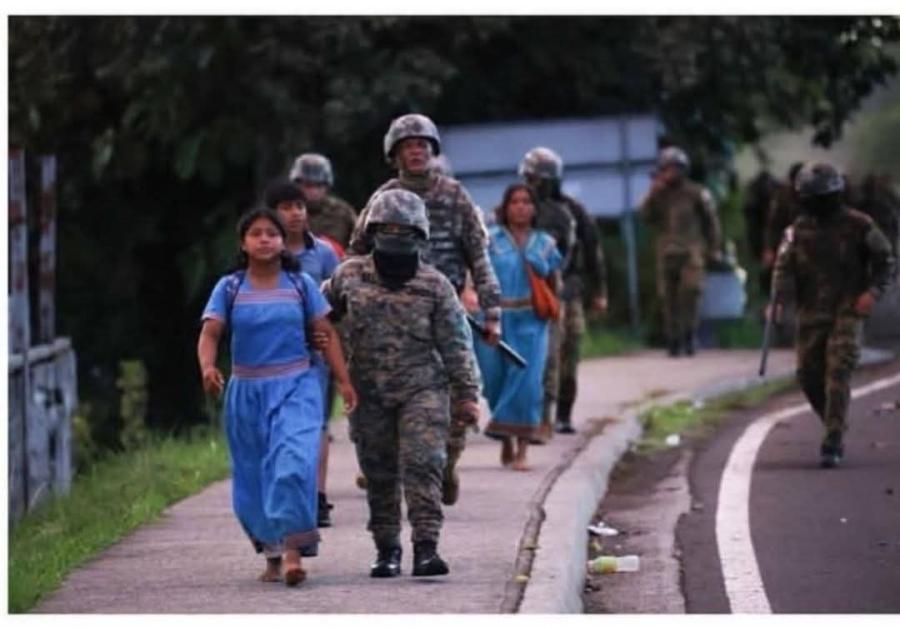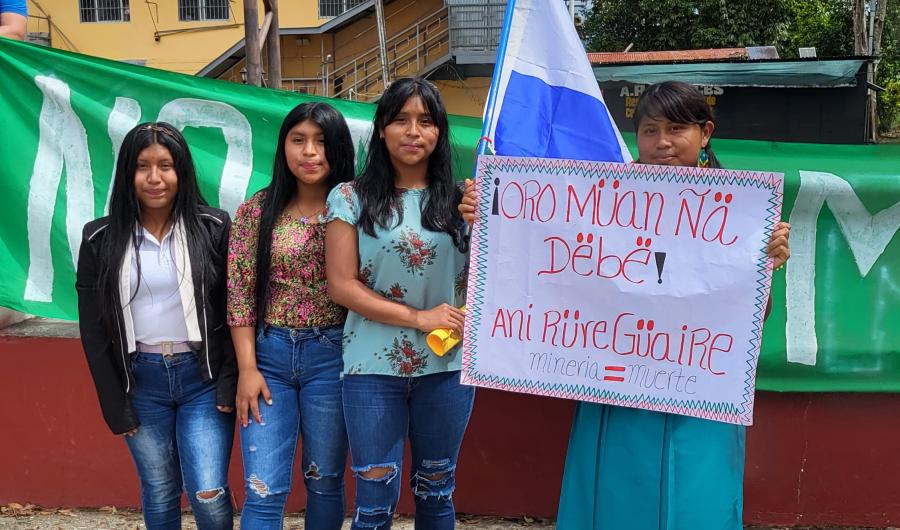
In the La Bruja ravine, in the Paso Ancho corregimiento in Panama, flooding, landslides, and road collapse pose a high risk as the area is located in the Chiriquí Viejo River basin. However, Ngäbe Buglé families are forced to settle there to access work in the agricultural sector of Cerro Punta, a region that produces large quantities of vegetables for the country. In November 2020, several communities in the area were affected by Hurricane Eta. There were deaths, houses were destroyed, and many families had to abandon their homes.
The Ngäbe Buglé face even more obstacle when they have to leave their ancestral homes in search of work. As reported by the Foundation for Comprehensive Community Development and Conservation of Ecosystems of Panama (FUNDICCEP, as per its Spanish acronym), “the Ngäbe Buglé women present the highest degree of vulnerability of the group residing in the Tierras Altas; on many occasions their presence is not even known, their data, the number of family members and their health conditions are missing.” In response to this situation, FUNDICCEP and two Ngäbe Buglé communities conducted a risk management assessment and training activities in 2021, with the support of a grant from the Keepers of the Earth Fund.
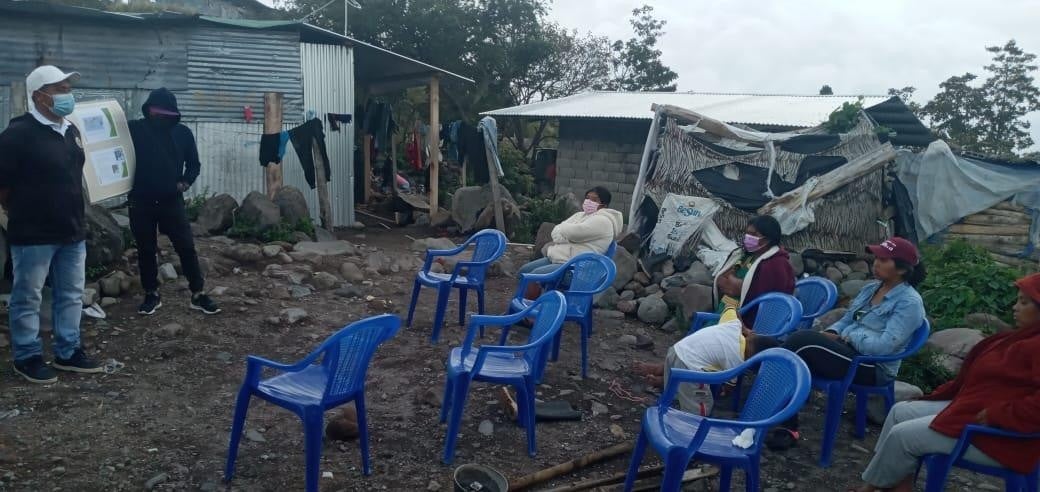
In recent months, FUNDICCEP has been developing a project for communities in this area, preparing emergency management committees in case of natural disasters, identifying risk zones and safe zones, and drafting risk maps. With this groundwork, a collaboration between the Bella Vista and Nuevo Bambito communities started in order to raise awareness about how to manage risk and prepare for natural disasters to lessen impacts on community members.
They began with an analysis of the population affected by Hurricane Eta which concluded with some stark data on the situation of families. The study revealed that there are an average of 15 people living in each household, which shows the dire economic conditions in which Ngäbe Buglé find themselves in Paso Ancho. There were 155 people affected by the hurricane who have not received external support to recover. There is still much reconstruction work that needs to be done after the hurricane. Before FUNDICCEP's intervention, the communities had not received any training to prevent further misfortunes.
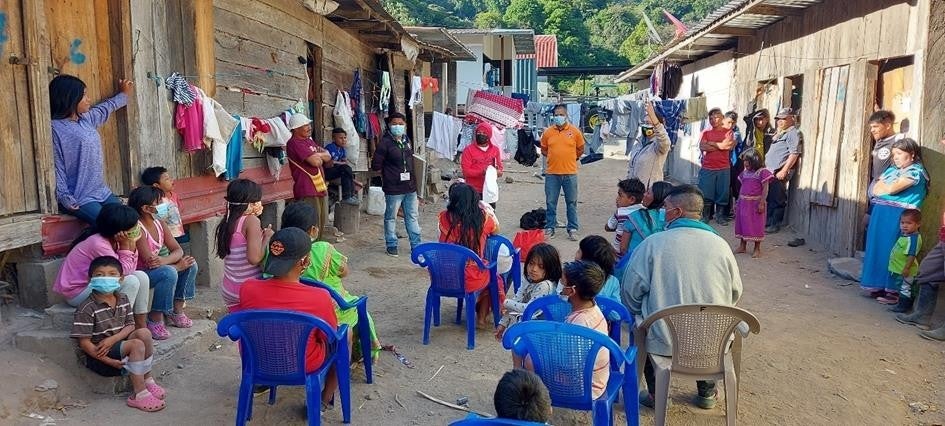
The analysis also resulted in the mapping of the entire area and a map that identifies risk areas and safe areas to go to in case of emergency was created. FUNDICCEP worked with families individually to develop their own contingency plans that included contacts, meeting points, and emergency backpacks. Families now have a clearer picture of their conditions and are ready to act in the event of a natural disaster. Ignacio Salina says that the community is “grateful for this opportunity to receive this training that will serve us forever for our family prevention plan.” “We have to keep reading the river,” adds Wilfredo Miter, a participant in one of the trainings. “Now we know how to locate our secure sites,” added another participant.
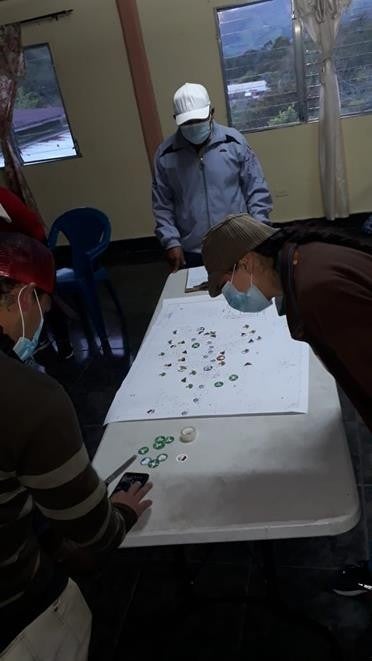
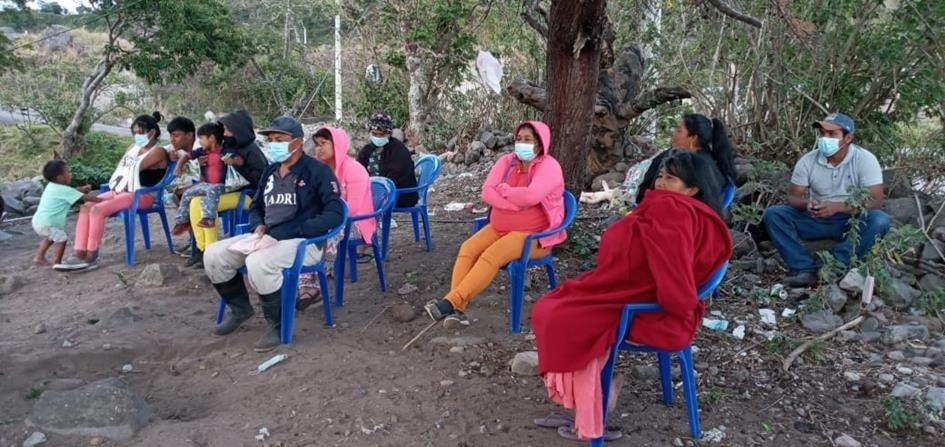
During a knowledge-sharing event, the results of this work were communicated to local authorities and with people from the neighboring Sololoy community, who are also Indigenous. Now that the first step has been taken, the permanently established families will keep their emergency plans updated and will share risk management planning information with new families who come in search of work to the area.
The Keepers of the Earth Fund (KOEF) is an Indigenous Led Fund within Cultural Survival designed to support Indigenous Peoples’ community development and advocacy projects. Since 2017, through small grants and technical assistance, KOEF has supported 190 projects in 37 countries totaling $828,067. KOEF provides, on average, $5,000 grants to grassroots Indigenous-led communities, organizations, and traditional governments to support their self-determined development projects based on their Indigenous values. Predicated on the United Nations Declaration on the Rights of Indigenous Peoples, Cultural Survival uses a rights-based approach in our grantmaking strategies to support grassroots Indigenous solutions through the equitable distribution of resources to Indigenous communities.
